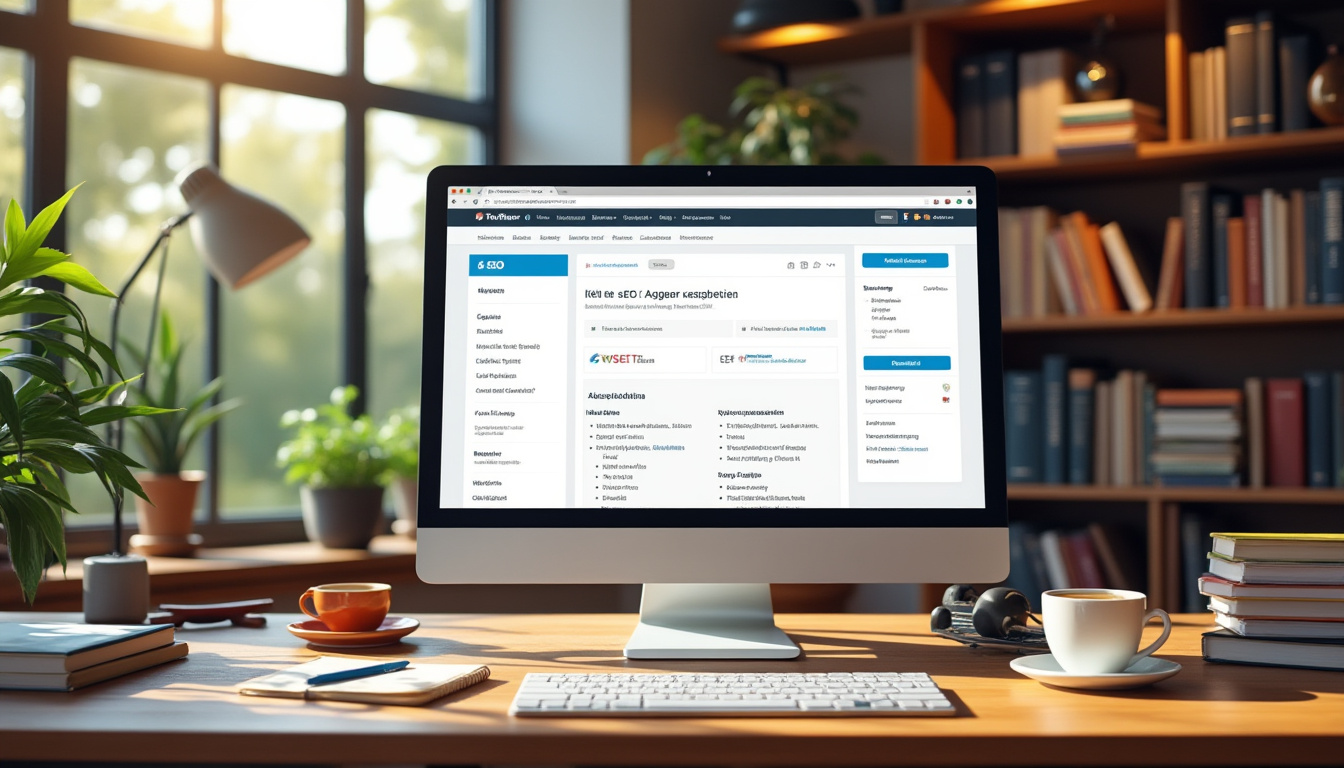Improving the SEO of your WordPress themes involves a few critical strategies. First, it’s essential to select an SEO-friendly theme that is responsive and optimized for speed. Regularly updating your content can enhance visibility, while employing SEO plugins like Yoast SEO can simplify on-page optimization. It’s crucial to optimize images by using descriptive alt text, which not only aids in accessibility but also improves search engine indexing. Furthermore, structuring your content with clear categories and tags, along with an organized URL structure, can significantly boost your website’s search performance. By incorporating these practices, you ensure that your WordPress themes effectively contribute to a higher search engine ranking.
Enhancing the SEO of WordPress themes is crucial for any website owner looking to improve visibility and attract organic traffic. This article will cover various techniques and strategies to bolster the SEO of your WordPress themes, exploring aspects such as keyword optimization, content quality, site structure, image optimization, and the use of SEO plugins. You’ll learn how the right approach can positively impact your site’s search engine rankings and user experience.
Understanding the Role of SEO in WordPress Themes
SEO, or Search Engine Optimization, is the practice of increasing the quantity and quality of traffic to your website through organic search engine results. For WordPress themes, understanding the fundamentals of SEO helps configure your site in a way that improves its ranking potential. By employing certain strategies, you can enhance the visibility of your website, ensuring it appears prominently in search engine results pages (SERPs).
Choosing an SEO-Friendly Theme
One of the first steps in optimizing your WordPress site for SEO is selecting an SEO-friendly theme. A theme that is designed with SEO best practices in mind typically features clean code, fast loading times, and responsive design suitable for mobile devices. When purchasing or selecting a theme, look for the following features:
Clean and Valid HTML/CSS Code
The structure of your theme’s code plays a significant role in how well search engines can index your site. Ensure that the theme is coded following best practices and standards, as this helps search engines decipher your HTML more effectively.
Responsive Design
With mobile searches on the rise, using a responsive theme is essential. A responsive design ensures that your website functions well across various devices and screen sizes, enhancing user experience and keeping visitors engaged.
Fast Load Times
Speed is a crucial ranking factor in SEO. Choose a theme optimized for performance, as slow-loading websites can lead to higher bounce rates. Incorporating lightweight themes that prioritize speed can significantly improve your site’s ability to rank well in search engines.
Optimizing Your WordPress Settings
After selecting an appropriate theme, the next step is optimizing your WordPress settings. These adjustments enable your site to function more effectively in search engines.
Permalinks Structure
The way your URLs are structured influences your site’s SEO. Go to your WordPress dashboard, navigate to Settings, then Permalinks. Opt for a structure that includes post names within the URL, as this helps convey relevant information to search engines.
Site Visibility Settings
Ensure your site is visible to search engines by checking your settings in the WordPress dashboard under Reading. Make sure the “Discourage search engines from indexing this site” option is unchecked. This allows search engines to crawl and index your site effectively.
Keyword Research for SEO Optimization
Conducting keyword research is paramount in determining which phrases and terms people are using to find websites similar to yours. By identifying these keywords, you can create relevant content that targets specific audiences.
Using Keyword Research Tools
Incorporating Keywords into Content
Strategically place your primary keywords in essential areas, such as the title, headings, and throughout the body text. However, ensure that the incorporation of keywords feels natural and enhances the readability of your content.
Creating High-Quality Content
Content is at the heart of SEO. Regularly posting high-quality content not only engages your audience but also attracts search engines to index your site. The more valuable content you provide, the better your rankings will be.
Unique and Relevant Content
Always strive to create unique, relevant content that addresses your audience’s needs. Aim for in-depth articles that provide valuable insights, as search engines favor content that thoroughly covers a topic.
Using Heading Tags Properly
Utilize heading tags (H1, H2, H3, etc.) appropriately to structure your content. This helps both search engines and readers navigate your content more easily and understand its hierarchy.
Optimizing Images for SEO
Images play a significant role in enhancing user experience, but they can also impact your SEO if not optimized correctly. Incorporating image optimization techniques is vital to maintain site performance.
Using Alt Text for Images
Alt text helps search engines understand the content of your images. Be sure to include descriptive alt text for each image, incorporating relevant keywords without overstuffing. For effective guidelines on using alt text, check out this resource.
Image Compression
Large image files can slow down your website’s loading speed, negatively impacting SEO. Use image compression tools before uploading images to reduce file sizes while maintaining quality.
Using SEO Plugins
Leveraging SEO plugins can simplify the process of optimizing your WordPress site. Plugins like Yoast SEO and Rank Math provide user-friendly tools to enhance on-page SEO elements.
Yoast SEO
This popular plugin allows you to set SEO titles, meta descriptions, and focus keywords for each post and page. It actively gives feedback on your content’s readability and SEO performance, guiding you to optimize effectively.
Rank Math
Rank Math also offers similar features but with an added twist. It provides an intuitive setup wizard to configure your SEO settings, helping you effortlessly optimize your website’s visibility.
Monitoring Your SEO Performance
Continuous monitoring of your WordPress site’s SEO performance is crucial for identifying areas needing improvement. Regularly assess your metrics for valuable insights.
Using Google Analytics
Integrate Google Analytics into your WordPress site to track traffic, user engagement, and conversions. Assessing this data helps formulate strategies to improve your content and sharpen your SEO tactics.
SEO Performance Tools
In addition to Google Analytics, tools like Google Search Console provide comprehensive data on your site’s search performance. Monitor key metrics such as impressions, clicks, and average search positions to stay informed about your SEO efforts.
Best Practices for Effective SEO in WordPress
Incorporating best practices into your SEO strategy is essential to achieving and maintaining high rankings in search engine results.
Regularly Update Your Content
Stale content can harm your rankings. Regularly evaluate and update your existing posts to ensure they remain relevant, factually accurate, and engaging. Updating also signals to search engines that your site is active and providing value.
Improving Site Speed
Beyond just choosing an optimized theme, consider other factors that could improve site speed. Implementing caching plugins, optimizing databases, and reducing server response times are other strategies to enhance loading speed.
How Themes Impact SEO
The choice of WordPress theme significantly influences your website’s SEO performance. Themes dictate how content is structured and displayed, impacting how search engines crawl and index your site.
Compatibility with Page Builders
Investigate whether your theme is compatible with popular page builders like Elementor or Beaver Builder. Compatibility ensures you can create SEO-optimized pages without hindrance.
Schema Markup Integration
Some themes allow easy implementation of schema markup, which provides additional context to search engines. This can enhance the presentation of your site in search results, leading to increased click-through rates.
Enhancing the SEO of your WordPress themes requires a combination of strategic planning, continuous monitoring, and implementation of best practices. Effective keyword research, high-quality content, proper formatting, and optimal use of plugins all contribute to an improved SEO landscape. Remember to remain updated with SEO trends and adapt your strategies accordingly for sustained success.

Optimizing the SEO of WordPress themes is crucial for improving website visibility and attracting organic traffic. This article will explore various strategies to enhance the SEO performance of your WordPress themes, ensuring your site is well-structured, easy to navigate, and tailored for search engines.
Choosing an SEO-Friendly Theme
The first step in enhancing SEO is to choose a theme that is designed with SEO principles in mind. Look for templates with clean code, fast load times, and responsive designs. Themes such as those found in the best SEO-friendly WordPress themes list will serve as a solid foundation for your website’s performance.
Incorporating SEO Plugins
Using SEO plugins is essential for maximizing the capabilities of your WordPress theme. Popular plugins like Yoast SEO and Rank Math provide robust tools for optimizing on-page elements such as titles, meta descriptions, and keyword usage. They also guide you through best practices that can significantly improve your site’s SEO health.
Creating High-Quality Content
High-quality content plays a significant role in enhancing SEO. Ensure your posts are informative, engaging, and relevant to your target audience. Regularly updating your site with fresh content signals to search engines that your site is active and relevant. Tools and resources can assist you in developing a content strategy that adheres to SEO best practices.
Optimizing Images
Images can slow down your website, impacting SEO performance. To optimize images, ensure they are compressed, appropriately sized, and described with relevant alt text. Alt text not only helps with accessibility but also enhances SEO. For guidance on how to effectively use alt text, consider resources like this link.
Utilizing Proper URL Structure
A clean and descriptive URL structure is vital for SEO. Use keywords in your permalinks and ensure they are easy to read. This not only helps search engines crawl your site but also allows users to understand the content of your pages easily.
Monitoring SEO Performance
Tracking your SEO performance is crucial for ongoing optimization. Utilize tools like Google Analytics and Google Search Console to monitor your site’s metrics. This data will help you identify which areas of your site need improvement. For more information on effectively monitoring SEO performance, you can refer to this resource.
Leveraging Content Marketing
Implementing a content marketing strategy can greatly enhance your WordPress theme’s SEO performance. By creating shareable content such as blogs, infographics, and videos, you can attract backlinks and drive traffic to your site. This holistic approach helps in establishing your website as an authority in your niche. You can learn more about this approach at this link.
Comparative Table: Strategies to Enhance SEO of WordPress Themes
| Strategies | Description |
| Choose an SEO-Friendly Theme | Opt for themes optimized for SEO with clean code and fast loading speeds. |
| Utilize SEO Plugins | Install plugins like Yoast SEO to enhance on-page SEO capabilities. |
| Optimize Images | Use descriptive alt text for images to improve search engine indexing. |
| Create High-Quality Content | Produce engaging and informative content that answers users’ queries. |
| Regularly Update Content | Maintain a content schedule to keep your site fresh and relevant. |
| Optimize URL Structure | Use clean and descriptive URLs that include target keywords. |
| Implement Responsive Design | Ensure your theme is mobile-friendly for better user experience and SEO rankings. |
| Utilize Social Sharing Features | Incorporate social media buttons to increase content visibility and traffic. |
Enhancing the SEO of WordPress Themes
Improving the SEO of your WordPress theme is crucial for maximizing your website’s visibility and attracting organic traffic. In this article, we will explore effective strategies for optimizing your WordPress themes for search engines, ensuring that you not only choose the right theme but also implement best practices to enhance your site’s overall performance.
Choosing an SEO-Friendly Theme
Your first step should be selecting a WordPress theme that is built with SEO in mind. Look for themes that are lightweight, fast-loading, and cleanly coded. A well-structured theme can greatly affect how search engines crawl and index your site. Additionally, opt for responsive designs that adjust seamlessly to various devices, as mobile-friendliness is a ranking factor.
Key Features to Look For
- Schema Markup: Ensure the theme supports schema markup to help search engines understand your content better.
- Optimized HTML Structure: A theme with well-structured HTML enhances readability for both users and search engines.
- Fast Load Times: Select a theme that is optimized for speed, as slower sites tend to rank lower.
Utilizing SEO Plugins
Once you’ve selected an appropriate theme, it’s essential to enhance its functionality using SEO plugins. Plugins like Yoast SEO or Rank Math can significantly simplify on-page optimization and provide valuable insights into how to improve your content.
Benefits of Using SEO Plugins
- Content Analysis: These plugins help analyze your content for SEO best practices.
- Meta Tag Management: Easily manage meta titles and descriptions for better visibility in search results.
- XML Sitemaps: Automatically generate sitemaps, improving your site’s indexing.
Optimizing Content Quality
The backbone of any successful SEO strategy is high-quality content. When creating pages or blog posts, focus on delivering value to your audience. Regularly publishing fresh content signals to search engines that your site is active and relevant.
Strategies for Quality Content
- Keyword Research: Start by conducting thorough keyword research to identify what your audience is searching for.
- Content Organization: Organize content using categories and tags, making it easier for users and search engines to navigate.
- Internal Linking: Strategically link related content, enhancing usability and distributing page authority.
Image Optimization
Images play an essential role in enhancing user experience but can also slow down your site if not optimized correctly. Use Alt text effectively to describe images, aiding search engines in understanding the content. Additionally, compress images to improve load times.
Best Practices for Image Optimization
- Descriptive Filenames: Use descriptive filenames that include relevant keywords.
- Responsive Images: Use responsive images to ensure optimal display across devices.
- Lazy Loading: Implement lazy loading to defer loading of images until they are necessary.
Monitoring SEO Performance
To continuously improve your WordPress theme’s SEO, regularly monitor your site’s performance. Utilize tools like Google Analytics and Google Search Console to track traffic patterns and assess the effectiveness of your SEO strategies.
Performance Monitoring Tips
- Regular Audits: Conduct SEO audits to identify areas needing improvement.
- User Engagement Metrics: Analyze bounce rates and session durations to gauge content effectiveness.
- Keyword Tracking: Monitor keyword rankings to assess your optimization efforts.









